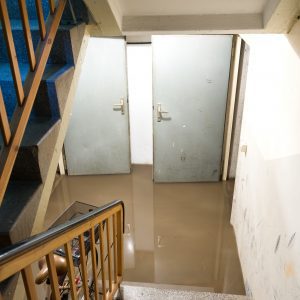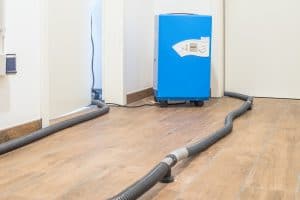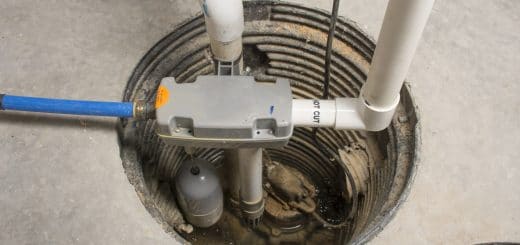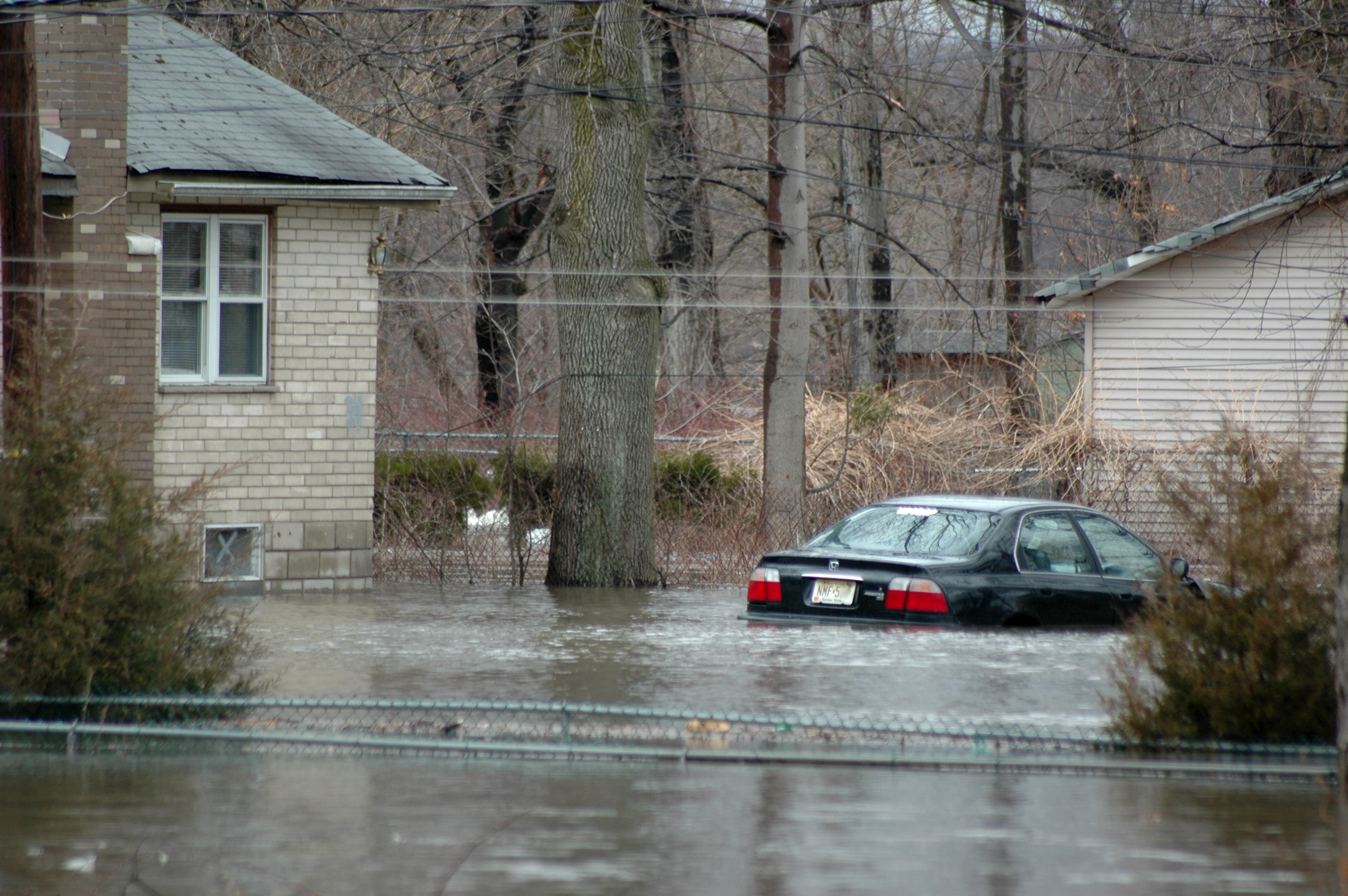Finding a Basement Leak: What to Do
When you find a leak in your basement, it can be a stressful situation. Whether the leak is minor and has caused minimal structural damage or the leak is significant and has caused your basement to flood, the important thing to remember in such a situation is to remain calm but act promptly to avoid further damage.
When dealing with a wet basement, use the following information to help guide you.
Be Safe

Make sure to follow these steps as soon as you find a leak in your basement.
When dealing with a wet basement, you need to prioritize your safety. If you need to go into your basement, wear rubber boots and stay dry. Don’t use electrical devices unless it is safe to do so, or you may be electrocuted or shocked.
Find and Address the Water Source
Before addressing the water and any damage it has caused, it is important to know where the water came from. This is because you need to address the source first. Otherwise, the leak can just create a larger problem.
If a plumbing issue caused the leak, then you need to address that problem and call a plumber. If water has leaked from outside your home through the basement windows, then you should check your gutters and downspouts. They may be clogged and in need of cleaning, or they might be insufficient at directing water away from your home. In this case, downspout extensions may need to be installed. You can also contact a basement waterproofingWaterproofing is the application of materials or coatings de... More contractor to help you determine where the water is coming from and what’s causing the issue.
Extract Standing Water
If you can do so safely, use a wet-dry vacuum to extract the standing water from your leaking basement. Use this method for basements that have been partially flooded. If the floodingFlooding is the overflow or accumulation of water in areas t... More is immense or you cannot safely extract the water yourself, then you need to call a professional to extract the water. The sooner you are able to do this, the better, because water will cause more damage the longer it stands. Additionally, there’s a greater chance of moldMold is a type of fungus that grows in damp or humid conditi... More growth if you do not remove the water quickly.
Sort Through Belongings that Attract Mold
After your basement has been cleared of standing water, go through your belongings. Any organic materialsOrganic materials are derived from living organisms, such as... More can attract moldMold is a type of fungus that grows in damp or humid conditi... More if they stay wet for more than a day. If you don’t address that immediately, you’ll have to deal with mold growth on top of water damage. Some examples of these materials include fabric, leather, paper, and wood. As you sort through your materials, determine what you can salvage and dry out and what is better off discarded.
Install Replacements to Prevent Leaks and Flooding
You must take precautions to prevent your basement from flooding.
Inspect the supply hoses for your washing machine; if they have signs of cracking, then replace them before they cause problems. Also, check for any leaks from your property’s drain lines and water supply. If you have an old tank water heater, replace it before its interior rusts and results in a flooded basement.
Protect your basement from outside leaks by installing new window wells and well covers.
Contact a Professional

Always make sure to call for professional in the event of water damage to properly dry out all building materials and prevent moldMold is a type of fungus that grows in damp or humid conditi... More growth.
Even though you may feel that you can handle basement water damage on your own, it is in your best interest to enlist professional help from a water damage restoration company.
When dealing with water damage, there are various safety hazards involved, including potential electrocution and/or exposure to contaminated water. Because of this, you might be better off keeping your distance from the water and having professionals tend to it instead.
Professionals know how to address water damage in a safe manner. They will extract standing water, thoroughly dry out your property, restore damaged materials and belongings, conduct mold remediationMold remediation is the process of identifying, removing, an... More, and more to restore your basement to its original condition.












